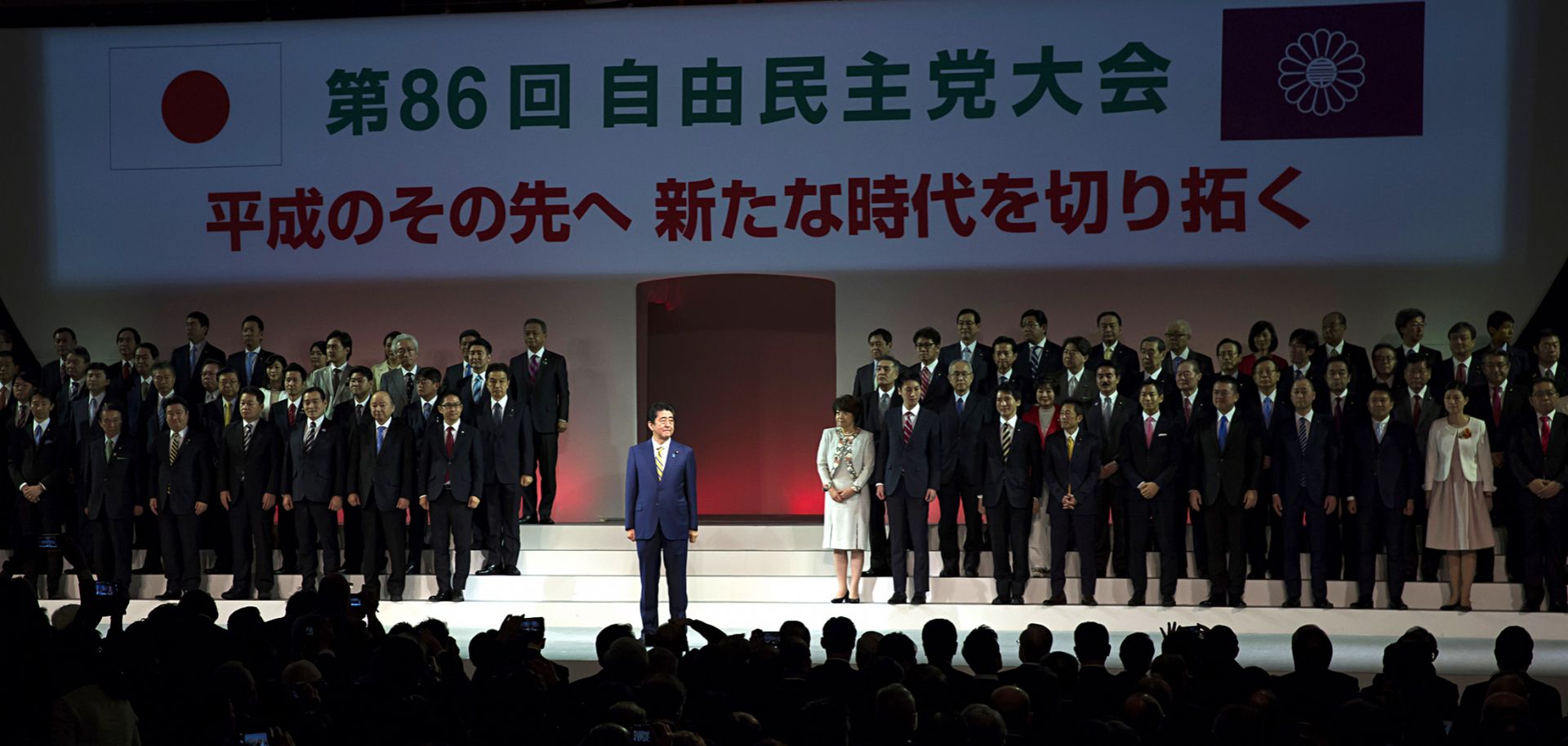ASSESSMENTS
Japan's Prime Minister Is Saving His Most Ambitious Plans for Last
Jun 15, 2019 | 09:30 GMT

Japan's ruling Liberal Democratic Party (LDP) introduces the candidates for the country's upcoming legislative election at an annual convention in Tokyo on Feb. 10, 2019.
(Tomohiro Ohsumi/Getty Images)
Highlights
- The upcoming election for Japan's upper house will not jeopardize the ruling Liberal Democratic Party's current stronghold, but will instead serve as a gauge of public attitudes concerning its domestic policies and priorities.
- A strong performance in the polls will grant Prime Minister Shinzo Abe the freedom to pursue long-awaited constitutional reforms and a consumption tax hike in the final two years of his third term.
- After the election, Japan will likely strike a bilateral deal with the United States to avoid auto tariffs before November, though Tokyo will push for the agreement to be as narrow as possible.
Subscribe Now
SubscribeAlready have an account?
